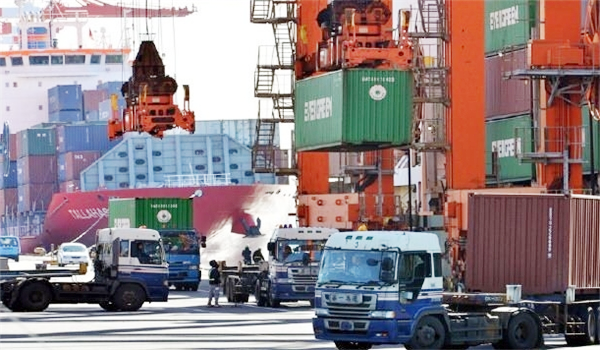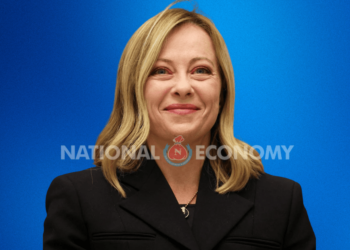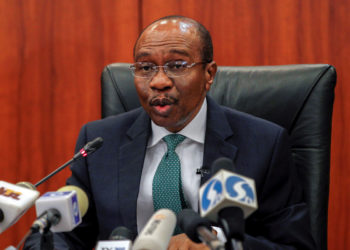The governor of the Central Bank of Nigeria (CBN), Godwin Emefiele, has stressed the need for banks and stakeholders in the financial industry to work together on increasing non-oil foreign exchange in the country in order to meet up with the country’s dollar for import demands, as he said there is scarcity of foreign exchange in the country.
Speaking at the opening ceremony of the Bankers Committee Retreat holding in Lagos recently, Emefiele called on the bankers to proffer lasting solutions to ending the reliance of the country on oil related foreign exchange inflow.
Emefiele who had recently noted that the dollar remittance from the Nigerian National Petroleum Corporation (NNPC) had dopped to zero this year noted that there is a shortage of foreign exchange to meet genuine import needs of Nigerians.
At the 2022 Bankers’ Committee Retreat titled: “Increasing the Productive Base of the Nigerian Economy and Non-Oil Export Revenues,” the CBN governor noted that with the almost non-existence of foreign exchange from crude sales, its policy on RT200 was timely.
Calling for increased efforts at diversifying the country’s economy and revenue away from crude receipts, he said, “We must in an attempt to walk towards diversifying the nation’s economy think about how we be less reliant from crude revenues. We are in the business of servicing our customers and servicing customers also entails that they have import needs and they need foreign exchange to conduct their import activities.
“To do so means you need foreign exchange for solving them. There is a clear shortage of foreign exchange today but yet as bankers, we must meet the needs of our customers. The market is tight and I know we don’t have a choice, we will have to do something to ensure that this problem is solved.
“That is the reason we decided at this retreat to focus on RT200 because essentially, we have to think about how to source foreign exchange for our customer’s needs without necessarily needing to resort to revenues from crude which as we all know has come to zero or almost zero compared to about $3 billion monthly that we were getting in 2014,” Emefiele stated, as he urged the bankers to think outside the box and try as much as possible to think of how the import needs of customers are met.
Meanwhile, he noted that the global reaction to the evolving circumstances has escalated the threat of hyper-inflation causing central banks in many countries to react with a sharp and extensive monetary tightening in renewed pursuit of price stability and in most cases even at the expense of growth.
“In view of the widespread food and cost-of-living crises, we are seeing growing restrictions on food exports as about 23 advance economies, according to the World Bank, have banned the export of 33 food items. Also, the European Union plans to impose energy price caps on Russian supplies, to curtail energy crisis caused by the war in Ukraine.
“Most of these actions, including the effects of capital flow reversals and exchange rate pressures, have not only amplified the vulnerabilities of EMDEs, but assertively highlights the need for us to strengthen our domestic economic base, fast-track the attainment of economic diversification, limit our reliance on foreign products, insulate and immunise our economy against foreign shocks,”he said.
Furthermore on diversification, he said, “ It is in view of the need to support the fundamentals of the Nigerian economy, diversify from dependence on oil inflows, and minimise the debilitating pressures in the foreign exchange market that the Central Bank of Nigeria launched the RT200 programme in February 2022.
“This initiative, which is designed to stimulate non-oil exports with a $200 billion foreign exchange income target in three to five years, has been widely accepted and driven by the institutions that constitute the Bankers’ Committee. In order to contribute to national development and economic growth, the Bankers’ Committee must recognise the critical role of the financial system in accelerating the development of the productive base of the economy.
“We must play our productive parts to engender the necessary infrastructure and services that are critical to boosting non-oil exports. The 2022 Bankers’ Committee Retreat provides us with the opportunity to review the progress and impact of the implementation of RT200. It is equally an occasion to re-examine our support for other government programmes to promote non-oil export and to identify specific implementable actions by the financial system to enhance foreign exchange revenues,” he pointed out.





